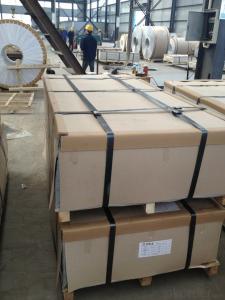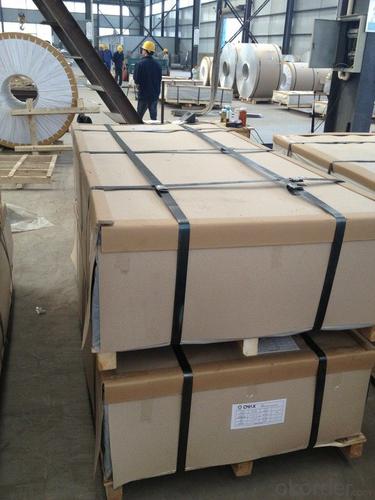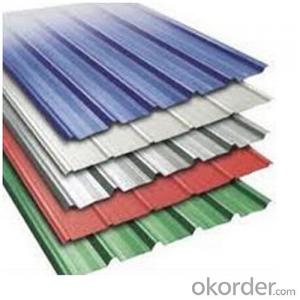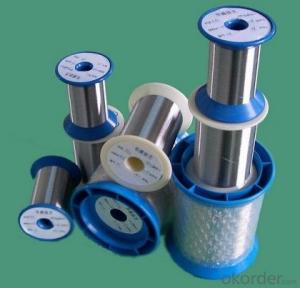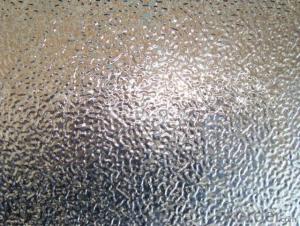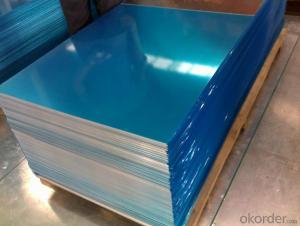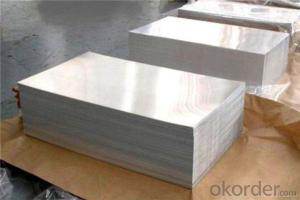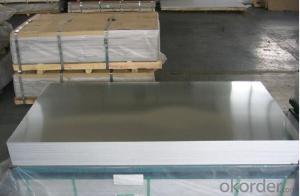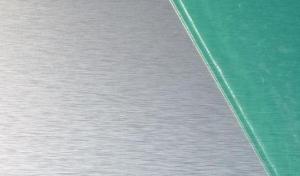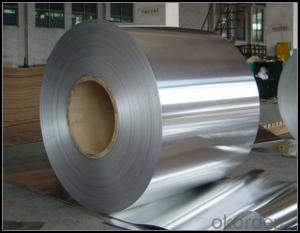Disposable Aluminum Baking Sheets 1mm-3mm
- Loading Port:
- China Main Port
- Payment Terms:
- TT OR LC
- Min Order Qty:
- -
- Supply Capability:
- -
OKorder Service Pledge
OKorder Financial Service
You Might Also Like
Specifications
aluminium sheet
1.Good strength of extension
2.Better tensile yield strength
3.Best elongation
aluminium sheet
Supplier the best quality of aluminium sheet
Advantages:
1.Good strength of extension
2.Better tensile yield strength
3.Best elongation
Applications:
chemical process plant equipment,food industry containers,architectural flashings, lamp reflectors, cable sheathing
Specification:
Main Products | Alloy Number | Hot rolling finial Thickness | Cold mill finial Thickness | Hot rolling finial Width | Cold mill finial Width |
1xxx Series | 1235 1050 1060 1100 | 2-8mm | 0.1-0.5mm | 900-2400mm | 1000-2400mm |
3xxxSeries | 3003 3004 3104 | 2-8mm | 0.1-0.5mm | 900-2400mm | 1000-2400mm |
5xxxSeries | 5052 5182 5083 5005 5754 | 2-8mm | 0.1-0.5mm | 900-2400mm | 1000-2400mm |
8xxxSeries | 8079 8011 | 2-8mm | 0.1-0.5mm | 900-2400mm | 1000-2400mm |
- Q: To rephrase- in our physics class we found that a simple bar magnet wouldn't attract to an aluminum gutter nail, but our teacher told us to find out whether or not any magnet could lift up the aluminum material. If you answer please give a reference or source, or at least an idea on how to go about researching this, all help appreciated, thanks and God Bless!
- Aluminum Magnet
- Q: How is the strength and durability of aluminum sheets determined?
- The determination of the strength and durability of aluminum sheets involves the utilization of various testing methods and parameters. A key factor in establishing the strength of these sheets is their alloy composition. Different compositions of alloys possess different levels of strength, and the addition of certain elements to the aluminum can enhance its strength properties. In order to assess the strength of aluminum sheets, the commonly employed method is tensile testing. This procedure entails subjecting a sample of the sheet to tension until it fractures. Throughout the test, the load and deformation are measured, and the ultimate tensile strength (UTS) and yield strength are established. The UTS signifies the maximum amount of stress that the sheet can endure before failure, whereas the yield strength is the stress at which the material begins to deform plastically. The thickness of aluminum sheets is another crucial consideration when determining their strength and durability. Generally, thicker sheets tend to exhibit greater strength and durability compared to thinner ones due to the increased cross-sectional area that contributes to their load-bearing capacity. Apart from alloy composition and thickness, the strength and durability of aluminum sheets are also influenced by the manufacturing process. Factors such as rolling and heat treatment have the ability to alter the microstructure of the aluminum, thereby affecting its mechanical properties. Effective control of these processes is essential in order to ensure consistent strength and durability across all sheets. Moreover, the resistance to corrosion is often evaluated for aluminum sheets. Aluminum naturally forms a protective oxide layer, which enhances its resistance to corrosion. However, specific coatings or treatments can be applied to further enhance this resistance, depending on the intended application. In conclusion, the determination of the strength and durability of aluminum sheets is achieved through a combination of factors including alloy composition, thickness, manufacturing processes, and testing methods such as tensile testing. These factors collectively govern the mechanical properties and resistance of aluminum sheets to various forms of stress, rendering them suitable for a wide array of applications.
- Q: Are the aluminum sheets suitable for manufacturing automotive body panels?
- Indeed, automotive body panels can be manufactured using aluminum sheets. Aluminum, being a material that is both lightweight and robust, presents numerous advantages in the realm of automotive applications. Its high ratio of strength to weight enables enhanced fuel efficiency and superior overall vehicle performance. Furthermore, aluminum boasts exceptional corrosion resistance, rendering it suitable for enduring adverse environmental conditions. Moreover, its malleability and ease of manipulation facilitate the creation of intricate designs and shapes essential for automotive body panels. These attributes have established aluminum sheets as a highly favored option within the automotive industry for the production of body panels.
- Q: Can the aluminum sheets be used for manufacturing electrical connectors?
- Indeed, electrical connectors can be manufactured using aluminum sheets. The lightweight and exceptional conductivity of aluminum render it ideal for the efficient transmission of electricity. Its outstanding conductivity and ability to resist corrosion make it a frequently employed material in diverse electrical applications, particularly connectors. Furthermore, the malleability and ease with which aluminum can be molded into diverse connector designs make it an adaptable material for the production of electrical connectors.
- Q: How do aluminum sheets compare to other metals in terms of strength?
- Aluminum sheets generally have lower strength compared to other metals. While aluminum is lightweight and has excellent corrosion resistance, it is not as strong as metals such as steel or titanium. Aluminum has a lower tensile strength and yield strength compared to these metals, making it more susceptible to deformation and failure under heavy loads. However, aluminum can be alloyed with other elements to improve its strength, and specific aluminum alloys can rival or even surpass the strength of some other metals. Additionally, aluminum's strength-to-weight ratio is one of its main advantages, making it a preferred choice in many industries where weight reduction is crucial, such as aerospace and automotive. Overall, while aluminum may not be the strongest metal in absolute terms, it offers a balance of strength, lightweight properties, and corrosion resistance that makes it a versatile material in various applications.
- Q: What is the cost of aluminum sheets compared to other materials?
- The price of aluminum sheets can vary based on factors such as thickness, size, quality, and market conditions. Nevertheless, when compared to materials like stainless steel or copper, aluminum sheets are generally more cost-effective. This is because aluminum is easily accessible and has a lower production cost, leading to its relatively affordable price. Moreover, aluminum is lightweight, durable, and resistant to corrosion, making it a favored option in many industries. It is important to consider that prices may change due to market demand, raw material availability, and other economic influences.
- Q: Can aluminum sheets be anodized for improved hardness?
- Anodizing aluminum sheets is a method to enhance their hardness. This process involves electrochemically forming a protective oxide layer on the surface of the aluminum. This oxide layer not only improves the sheet's ability to resist corrosion but also increases its hardness, making it more durable against wear and abrasion. The thickness of the oxide layer and, therefore, the hardness of the aluminum sheet can be precisely adjusted by carefully controlling the anodizing conditions, such as the type of electrolyte used, the applied voltage, and the duration of the process. Industries such as automotive, aerospace, construction, and electronics utilize anodized aluminum sheets because they require materials that possess both improved hardness and corrosion resistance.
- Q: what is the behaviour of Al2O3= aluminium oxide and SiO2= silicon dioxide when heated from room temperature to 1000 degree celcius?
- Aluminium oxide is a metal oxide and here shows it's basic properties. Silicon dioxide is a non metal oxide, so acidic Acid + base ---- salt so aluminium silicate is formed
- Q: Can aluminum sheets be etched or engraved?
- Yes, aluminum sheets can be etched or engraved.
- Q: Can aluminum sheets be used for insulation purposes?
- Aluminum sheets are capable of being used for insulation purposes. Due to its high thermal conductivity, aluminum serves as an efficient heat conductor. Nevertheless, in order to enhance insulation efficacy, aluminum sheets are typically combined with other substances. One common example is aluminum foil insulation, which involves combining aluminum foil with materials like foam or fiberglass to establish a heat transfer barrier. The reflective nature of aluminum further aids in deflecting radiant heat, thereby amplifying its insulation capabilities. In summary, although aluminum sheets alone may not offer ample insulation, they can be effectively utilized in conjunction with other materials to construct insulation systems suitable for diverse applications.
Send your message to us
Disposable Aluminum Baking Sheets 1mm-3mm
- Loading Port:
- China Main Port
- Payment Terms:
- TT OR LC
- Min Order Qty:
- -
- Supply Capability:
- -
OKorder Service Pledge
OKorder Financial Service
Similar products
Hot products
Hot Searches
Related keywords
